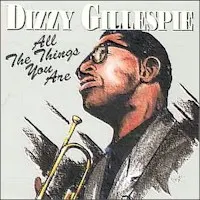Styles: Vocal
Year: 2007
File: MP3@320K/s
Time: 46:49
Size: 107,4 MB
Art: Front
(4:52) 1. Be My Baby
(6:54) 2. Islands
(5:43) 3. Conjunction
(3:11) 4. Come Ready and See Me
(5:13) 5. Shadows of Yesterday
(5:42) 6. The Song Is You
(5:35) 7. Poetic Song
(3:30) 8. Louise
(6:04) 9. Lass from the Low Countree
Come Ready and See Me
Year: 2007
File: MP3@320K/s
Time: 46:49
Size: 107,4 MB
Art: Front
(4:52) 1. Be My Baby
(6:54) 2. Islands
(5:43) 3. Conjunction
(3:11) 4. Come Ready and See Me
(5:13) 5. Shadows of Yesterday
(5:42) 6. The Song Is You
(5:35) 7. Poetic Song
(3:30) 8. Louise
(6:04) 9. Lass from the Low Countree
Louise Rogers proves absolutely infectious with her delightful vocals. Her expressive voice, playful scatting, and crystal-clear intonation strike the listener right off the bat. Her core group includes Rick Strong (her husband) on bass and Mathias Kunzli on drums, with pianist Matthew Fries, guitarist Paul Meyers, and saxophonist Gottfired Stoger added on a few tracks. Rogers and Strong wrote a hip tune to accompany poet Nikki Giovanni's "Be My Baby," with Kunzli's hand percussion initially serving as her sole accompaniment, adding the bass after the first chorus and scatting up a storm with it in octave unison. Jerry Bergonzi's melancholy "Conjunction" benefits from her hopeful lyrics. Rogers wrote both the words and music to the soft bossa nova "Shadows of Yesterday." Stoger's tense "Poetic Song" features demanding unison lines by the singer and saxophonist. Rogers also finds a fresh approach to the standard "The Song Is You" (adding Stoger on soprano sax) and a playful duet with Strong of the forgotten chestnut "Louise." But the biggest surprise is her setting of a traditional Celtic song, "Lass from the Low Countree," a haunting duet with Strong on electric bass. Highly recommended. ~ Ken Dryden http://www.allmusic.com/album/come-ready-and-see-me-mw0001169217
Personnel: Louise Rogers – vocals; Gottfried Stoger – saxophones; Paul Meyers – guitar; Matthew Fries – piano; Rick Strong – bass; Mathias Kunzli - percussion, drums
Personnel: Louise Rogers – vocals; Gottfried Stoger – saxophones; Paul Meyers – guitar; Matthew Fries – piano; Rick Strong – bass; Mathias Kunzli - percussion, drums
Come Ready and See Me




















